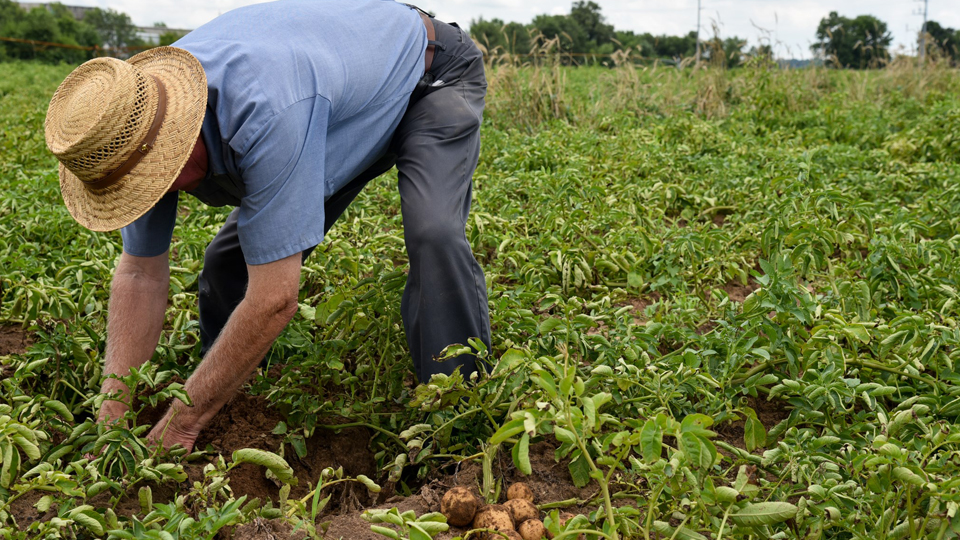Department of Ag Awards $800K for Water Quality Initiatives
Subscriber Benefit
As a subscriber you can listen to articles at work, in the car, or while you work out. Subscribe Now
The Indiana State Department of Agriculture and the State Soil Conservation Board have awarded nearly $800,000 in matching grant funds to 13 soil and water conservation districts and soil health organizations. The ISDA says the funds are part of the Clean Water Indiana program.
According to the department, a total of $1.6 million will be implemented to improve soil conservation and water quality initiatives throughout the state.
“Water quality enhancements and soil conservation practices are so incredibly important for our world,” said Lieutenant Governor Suzanne Crouch. “Without the local county soil and water conservation districts and our farmers we couldn’t produce the amount of agriculture products that we do and care the for environment at the same time. These grants are sure to increase soil organic matter and improve waterways for a lasting impact for years to come.”
The ISDA says the program provides financial assistance to landowners and conservation groups working “to reduce runoff from non-point sources of water pollution, whether it’s on agricultural land, urban areas or eroding streambanks.”
The recipients are listed below:
- Adams County SWCD – $35,100 to implement conservation practices for wildlife habitat and soil and water quality with pollinator habitats.
- Brown County SWCD – $30,975 to create or restore pollinator habitats and prairie plantings in and around Brown County.
- Jackson County SWCD – $80,000 to be used for cost share to producers for cover crops and pasture/hay planting projects in and around Jackson County.
- Knox County SWCD – $75,000 to hire a full-time soil health specialist who will build relationships with Knox County farmers and landowners and assist in efforts to adopt conservation practices that promote soil health.
- Lawrence County SWCD – $72,500 to allow the Soil and Water Conservation District to provide cost-share for the following practices: invasive species control, pasture/hay planting, and cover crops, among others.
- Marion County SWCD – $22,500 for district staff to develop a Rainscaping Education Program.
- Monroe County SWCD – $125,000 for a full-time conservation resource technician for Monroe County for a three-year period.
- Tippecanoe County SWCD – $98,500 to fund a technical staff person, cost share for invasive species and education materials for the cost share program and invasive species.
- Vigo County SWCD – $50,000 to offer conservation practices geared toward improving water quality, sediment and nutrient reduction, and increasing carbon sequestration, among others.
- Washington County SWCD – $71,250 to assist producers in Washington, Harrison, Crawford and Perry counties by providing cost-share funds to implement livestock practices: pasture & hay planting, watering facilities, and livestock pipeline, among others.
- Wayne County SWCD – $29,000 to establish a demo garden on a one acre lot at the Wayne County Fairgrounds with garden beds, pervious pavement, and pollinator habitat.
- Wells County SWCD – $40,000 for a cost share to producers in all of the Upper Wabash and all of the Salamonie River watersheds in Wells and Huntington counties for cover crops and equipment modifications.
- Southern Indiana Cooperative Invasive Species Management – $60,000 to hire four full-time and one part-time staff who will work with Soil and Water Conservation Districts and other natural resource organizations to develop Cooperative Invasive Species Management Areas.
“These grants are an excellent way for soil and water conservation districts to get more soil conservation practices on the ground. But this work couldn’t be done without Hoosier farmers being so willing to implement new soil and water quality protection initiatives on their farms,” said Bruce Kettler, director of the Indiana State Department of Agriculture. “These funding opportunities are a great way for districts to fund the help or resources they need, while still keeping farmers and soil conservation top of mind.”
The ISDA says the program is administered by the state’s soil conservation board.
